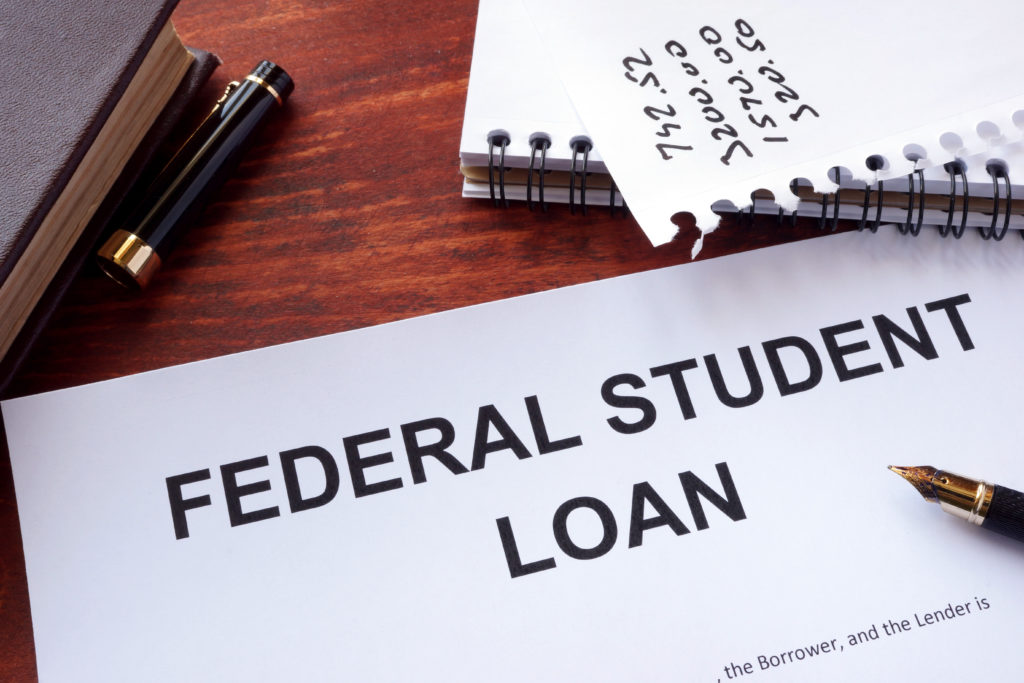Deciding whether to take out a private student loan or a federal loan can be tricky. Both have pros and cons, and it ultimately comes down to what works best for each student. This blog post will discuss the pros and cons of private student loans vs. federal loans so you can make an informed decision!
Private student loans can have higher interest rates than federal loans
You will pay more in the long run if you take out a private loan. However, private loans often have more flexible repayment options than federal loans. This can be helpful if you are struggling to make your monthly payments.
Private loans don’t offer the same loan forgiveness options as federal loans. If you are struggling to repay your loan, you may be able to get some of your debt forgiven through a federal program. Private loans do not offer this same option.
Federal loans are geared toward students with financial needs, while private loans are not. You may be eligible for a federal loan with a lower interest rate if you have financial needs. Federal student loans also offer deferment and forbearance options, which can be helpful if you are struggling to make your monthly payments.
Private student loan rates vary from lender to lender, while Congress sets federal student loan rates. This means that private loans can be more expensive in the long run. However, private loans often have more flexible repayment options than federal loans. This can be helpful if you are struggling to make your monthly payments.
Ultimately, it is up to each student to decide whether a private or federal student loan is right for them. We hope this blog post has given you some things to consider as you make your decision!
Private loans don’t offer the same loan forgiveness options as federal loans.
If you are struggling to repay your loan, you may be able to get some of your debt forgiven through a federal program. Private loans do not offer this same option.
Federal loans also offer income-driven repayment plans, which can lower your monthly payment if you struggle to meet ends. Private loans do not offer this same option.
If you have federal student loans and are having trouble making payments, you can contact your loan servicer to discuss your options. They may be able to put you on an income-driven repayment plan or offer other options to help make your payments more manageable.
Ultimately, it is up to each student to decide whether a private or federal student loan is right for them. We hope this blog post has given you some things to consider as you make your decision!
Federal loans are geared toward students with financial needs, while private loans are not.
Private loans don’t offer the same loan forgiveness options as federal loans. If you are struggling to repay your loan, you may be able to get some of your debt forgiven through a federal program. Private loans do not offer this same option.
Federal student aid is based on financial need, while private student loans are not. You may be eligible for a federal loan with a lower interest rate or other benefits if you have financial needs.
The federal government offers repayment plans that can lower your monthly payment if you struggle to meet ends. You can also contact your loan servicer to discuss your options if you’re having trouble making payments. They may be able to put you on an income-driven repayment plan or offer other options to help make your payments more manageable.
Direct subsidized and unsubsidized loans are two types of federal student loans. Federal Perkins Loans are another loan given to students with exceptional financial needs.
Student loan debt can be a burden, but it doesn’t have to be. You have options when it comes to repaying your loans. If you’re struggling, contact your loan servicer to discuss your options. They can help you find a repayment plan that works for you.
Private student loan lenders set their interest rates, which can be higher than the rates on federal loans.
The interest rate on your private student loan will depend on the lender you choose. Some lenders may offer variable interest rates, which means the rate could go up or down over time. Fixed interest rates will stay the same for the life of your loan.
Private student lenders also set their terms and conditions. This means that the length of your loan, the repayment options, and other features will vary from lender to lender.
Private lenders don’t offer the same loan forgiveness options as federal loans. If you are struggling to repay your loan, you may be able to get some of your debt forgiven through a federal program. Private loans do not offer this same option.
Federal student loan rates are set by Congress, while private loan rates vary from lender to lender.
Congress sets the interest rate on federal student loans. The current interest rate for undergraduates is fixed at %. The interest rate for graduate students is fixed at %.
Private student loan rates will vary from lender to lender. Some lenders may offer variable interest rates, which means the rate could go up or down over time.
Conclusion:
Ultimately, it is up to each student to decide whether a private or federal student loan is right for them. We hope this blog post has given you some things to consider as you make your decision! Check out some excellent private loan options at EdFed that might be perfect for you.















